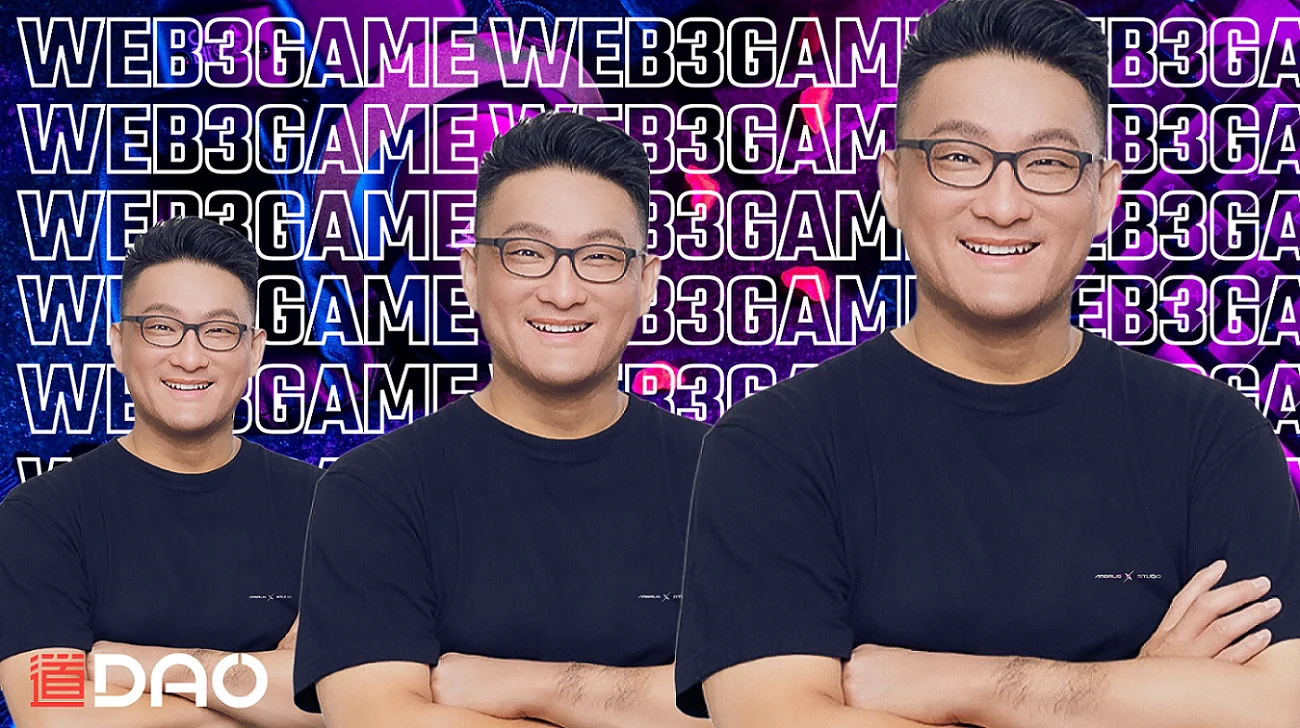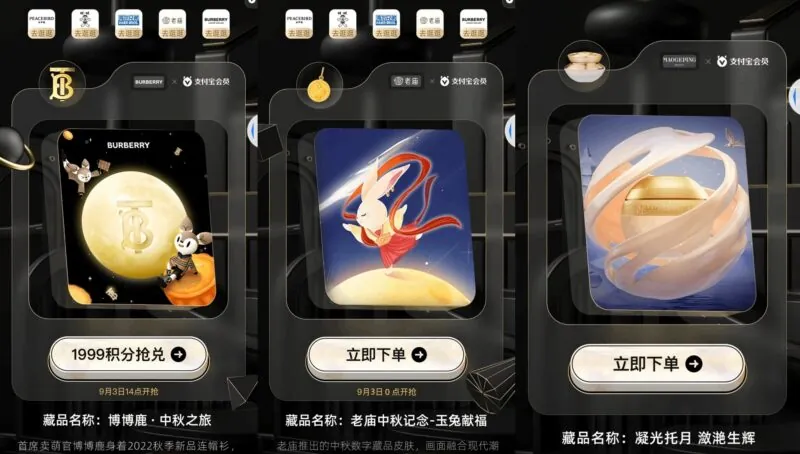The term Web3 has been taking the world by storm. The gaming sector is diving into this new iteration of the Internet in an attempt to empower end-players and realise a decentralised gaming sphere.
While MMO (Massively Multiplayer Online) games are regarded as having the chance to transition the masses from Web2 to Web3 amongst various game genres, China, one of the world’s biggest esports markets in terms of revenue, is believed to possess the best MMO teams in the world, according to Tech Crunch and therefore, the country is expecting to see the birth of a killer Web3 game soon.
Dao Insights spoke to Johnson Yeh, a Riot Games veteran and founder and CEO at Ambrus Studio, an upcoming free-to-play Web3 mobile game developer, to explore the synergy between cutting-edge technology and the gaming industry.

Johnson Yeh is the founder and CEO of Ambrus Studio. He is also a Ph.D. holder with a background in strategic management from Guanghua School of Management, Peking University, and has an MBA in general management from Fuqua School of Business, Duke University.
Yeh is also the former CEO of Riot Games China, Japan, and Southeast Asia and has been regarded as the “Godfather of Esports in China”, who led League of Legends (LOL) esports to become China’s most viewed sport with over 4 billion hours viewed annually and the largest esports league globally in terms of revenue.
What made you decide to leave Riot Games and start your own Web3 gaming company? How are you finding it so far?
Essentially, I left because I felt like this was the best way for me to fulfill my passions. I have three passions in life: climate change, entrepreneurship, and innovation. In the gaming world, I felt there was very little I could do on the change front. So, I started to think about what things I could do to fulfill all my passions. There was a trigger point when another gaming company offered me a huge amount of money. But I was like, “is that what I want?” I did some soul-searching for a month to think about what I wanted to do and by the end of that month, I decided to start my own company.
I turned down the offer and resigned as Riot CEO on the same day, and decided that being an entrepreneur was the right path for me. And since then, it’s been great. Although you know, everyone says being an [entrepreneur] is hard, you only know how hard it is when you do it. But there are no regrets at all. I love every day of my life.
Could you briefly share your thoughts about the current development of video games in China based on recent technology?
Gaming in China is still growing steadily, especially over the last two years, the COVID years. During the pandemic, gaming was one of the sectors that continued to gain traction, especially when people were in lockdown, and then games became a favourite pastime for them.
China does have its own quote-unquote Web3 ecosystem that uses aliases and they have non-tradable NFTs.
But at the same time, there is a publishing requirement where you need a license number to publish. However, the government has been granting relatively few licenses, and then on two occasions, they stopped issuing licenses altogether over the past couple of years. That means for new games, it’s actually very hard [to be published]. But for existing games, for example, League of Legends or Honor of Kings, they continue to do very well.
On the development of Web3, I would say it’s still very nascent. There are companies who are looking into it and there has been some interest shown from the larger players. But I would say there are sceptics, or they are [making moves] slowly because they want to provoke the government. On the other hand, China does have its own quote-unquote Web3 ecosystem that uses aliases and they have non-tradable NFTs.
If you use a strict definition of English Web3, [China] probably doesn’t fit into it. But if you use views of the global [Web3] definition, then I would say that China over the last few years, at least in the gaming sector, has been relatively nascent when it comes to Web3 development. But with the number of lockdowns and the number of available licenses, more and more people are now looking to publish overseas. So, it [Web3 games] will eventually start to pick up but right now there is still a barrier.
Brands in China are now proactively seeking to collaborate with video game IPs. These collaborations have been done under the name of meta/virtual being, how do you think brands can leverage the popularity of the metaverse and digital humans to create more impactful campaigns?
The metaverse has already attracted a lot of attention. But if you look deep inside the metaverse, the defining difference should be the fact that it’s very immersive, therefore it’s very inclusive. But I think right now, neither has been achieved with what people are doing in China. I would say that people are actually using metaverse as a buzzword more than anything else. There is relatively little innovation around it.
The defining uniqueness of Metaverse should be the fact that it’s very immersive and inclusive.
That being said, there are some people benefiting from it, for sure. I mean, you know, getting better government policies, higher valuations, etc. But to me, that’s more hype than anything. I would say that the metaverse revolution hasn’t really started yet and it is just the beginning.
Have you observed any differences or unique practices in the Web3 transformation in China that has not yet been seen in the rest of the world? If yes, how are they different?
I actually feel like because of how blockchain technology and NFTs work, China has developed its own version of these technologies. Like, NFTs are not favourable [in China], but China’s NFT market actually became, I wouldn’t say very advanced, but it is in comparison to many parts of the world in terms as well as in NFT development. The online loyalty or membership program, quote-unquote phenomenon actually became quite important in Web3.
Brands are upping their budget on digital membership and NFT development. Because they see it as a good way to increase value for their customers and also grow them. So, I would say China started early by focusing on digital membership that can create real utility. Because while the rest of the world is scrambling over things such as profile picture appreciation, China is already focusing on real utilities.
How is Ambrus Studio helping gamers to transition from Web2 games to Web3? What are the main differences between the two?
At its core, there is no real Web3 gaming. There’s one big version of Web3 gaming – “play-to-earn”. But it has proven not sustainable, and there hasn’t been a proven sustainable model yet. But if you’re talking Web3 gaming, then I would say you characterise it, or you issue tokens, you build a community early on and your in-game assets or even your game is on the blockchain. That’s how people consider Web3 games.
What the Web3 ecosystem should bring to its users are interoperability, real ownership, and decentralised storage.
And the next question is how I will bring people from Web2 over to Web3. You need to make it painless and easy for them. Because at the end of the day, the difference between Web2 and Web3 is not that much. I believe that the future will be people still playing for the same incentive, which is playing for fun. So, you know, you still need to give them a fun game that Web3 doesn’t really have at the moment.
So, I believe that you should market a game, like a game that’s fun. People come here to play for fun and then they can enjoy what the Web3 ecosystem brings, which is interoperability, real ownership and decentralised storage. It is about a much stronger sense of community even early on before the game is developed. And then, of course, it is about how, for example, these NFTs can be very different from the Web2 game assets. These entities will be tradable, they can potentially have value appreciation and they can have more verifiable metadata attached to them, making these assets very unique.
How do you think Web3 gaming is being viewed in the West so far? How long do you think it will take for the public to accept Web3 games?
I think it’s like a snowball. It just takes a really fun game to be played by millions but is also a Web3 game, and people will transition naturally and realise “Oh actually, Web3 is not that hard” and the transition only takes a couple of clicks. Once a significant mass of people adopts this, then the snowball effect will start.
If we can get a game that people play for fun that can garner millions of players, then the Web3 revolution will start.
Right now, the adoption is in a different segment compared to the traditional gaming segment, that’s why the snowball effect is very limited. Because right now, Web3 gaming is dominated by those who are not really there to enjoy the fun of it. They are there for earning potential. I think if we can get a game that people play for fun that can garner millions of players, then the Web3 revolution will start.
What kind of positive impacts could the gaming industry bring to the environment as mentioned as part of Ambrus Studio’s mission, how could it be achieved, and how can Web3 facilitate that too?
I think we need to first understand that the world is on track for heating somewhere between 3 and 4 degrees Celsius by 2100 [according to Climate Change 2014 Synthesis Report Summary for Policymaker]. And very few people know about this dire crisis. So, the first thing our game is trying to do right is that we did a lot of research on rewriting our story and focus more on this backdrop so that we can educate the world about how bad it’s going to get.
I want to prove that gaming can have a positive impact on the world.
Johnson Yeh
That’s why our game starts with E4C [E4C-Final Salvation], which stands for the first four degrees Celsius. We make it so obvious that this is the issue that we want people to have awareness of it. And that’s the first part, the education.
The second part is about gamification/in-game missions. We think it’s a great way to have people develop this little habit of doing something good every day. So, we decided that we’re going to dedicate half of our missions to online-offline link stuff. That means you do something good in the real world; donating your old clothes, not using disposable utensils when you order your UberEats or whatever. And then you do one good thing online every day, and we give you some mission rewards. These habitual things can do good for the world.
Everyone, including myself, as gamers, we’ve always been quote unquote, looked down upon by people, by our parents, by people around us who view doing this as addictive and that it’s bad for you. What I really want to do is prove that gaming can have a positive impact on the world. Right now, no one is thinking about the intersection between gaming and the environment. I want to be the first person to make that link.









